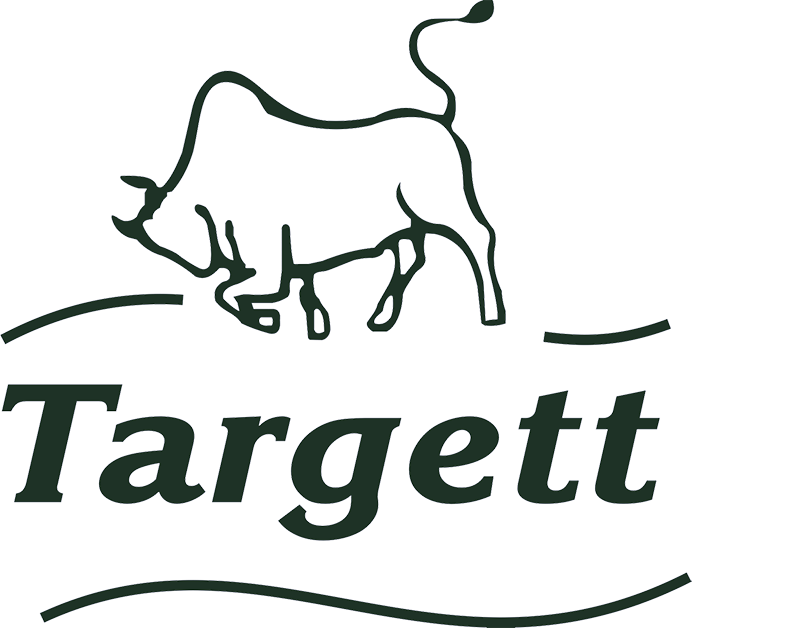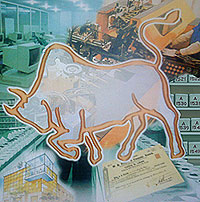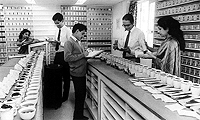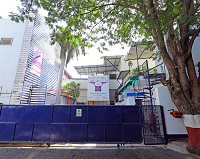Targett

Targett
+91 33 22307241 / 42

The firm was originally registered as Contemporary Tea Company Private Limited in 1975 and it began to assist producers in selling tea in February 1976. The beginning evoked a great deal of interest and excitement. It held its first auction in Calcutta in April of the same year. This new entrant to broking was founded in response to the trade’s need for service.
Marketing has often been defined as the exchange of satisfaction for money. Service would do well to be called the exchange of devotion for "dakshina" (reward given to a priest for performing a satisfactory ceremony). It is with this spirit that the founders of Contemporary began and bred the business. Even today any member of the tea fraternity is welcome to seek the service of the company even if he or she is unable to allocate business. Anyone who wishes to join the fraternity is also welcome.
We at Contemporary consider it a compliment if someone seeks our assistance. Many a time a manager has sought some information or our advice saying frankly that he is unable to influence business in our favour, but we have responded without hesitation. It has so happened several times that the manager eventually gets into a position where he is able to allocate business. And he does. Which then to us tastes like a bonus.
 |
To us a stranger seeking our service seems like a tribute, because it means that the person has heard well about us or else he would not have sought our guidance. So then service above all is the central motive force at Contemporary. In German, the motto would be "der Dienst uber alles". In Sanskrit, it would be "seva sarvopari".
Whether in tasting, evaluating tea or in marketing, the members of Contemporary keep striving to do their best and share their best with the tea fraternity. That is the overt or the obvious service that the Company gives the trade and industry. |
|
Contemporary was the first to introduce computers in the field of tea broking. The threat that unless brokers modernize and improve their service, business might slip away, has played a yeoman’s role in improving the service quality of all the brokers. That necessity is the mother of invention, is an old saying. But that competition is the father of progress is not often realized, maybe because no tea garden directly competes with another. The producer therefore is, by nature, not a competitive entity. Nevertheless, if the quality of tea broking has improved, it has been naturally to the advantage of the producer. |
 |
 |
When we tell our story, we are often confronted with the question as to why we have pursued diversification into the manufacture of toothbrushes and The Indian School. One answer is that helping teeth to remain clean and healthy is also a service, albeit to a very large number of people. While the profit motive is not excluded, toothbrush manufacture is consistent with the Contemporary spirit of service. To illustrate this point, the manufacture of "zarda" or cigarettes or festival crackers is not quite the same thing. |
 |
There is a strong reason why a tea broker should have diversified sources of income. His business is fraught with fluctuating income but loaded with largely a fixed overhead. One season the prices are high and the income is sufficient. Then there could be a slump and low prices depress brokerage. Quantity allocations to a broker are by no means guaranteed. The clientele may remain the same but quantities can go up and down depending on the crop of the season and also the ability of the producer to sell, by means alternative to the auction. To put it another way, a tea broker has no way of budgeting both sides of his book. He can estimate his expenditure but what he will earn by way of income is uncertain, if not actually a lottery.
|
Former Prime Minister Indira Gandhi with the |
Single entry accounting went out of vogue decades ago. Since then double entry is in the nature of accounting. For a business budget, two sides are indispensable, expenditure as well as income. But for a tea broker, while expenditure is a fact, income is only a hope. This is where diversification is almost indispensable. When a stable tea business is not available to a broker, he is tempted to use financing as a diversification, rather than as a service to his clients. The origin of broker financing was to assist the producer with loans and advances in his time of need. Until the 60s, it was not exceptional to find gardens which did not have crop hypothecation with a bank. They relied on broker finance. Whichever the form, whether seasonal or perennial, the objective was support and service to the client. |
Faced with rising costs, brokers began lending money with the primary intention of earning an interest margin. This could be risky. The financial stability of a broker is as vital to his clients as it is to himself. Money lending is, at the best of times, a risk-prone game which ideally should not be played by a broker, especially for the safety of his clients. If he has to do it in the absence of any other line of business, he should reinforce his income. Now you see why Contemporary has diversified. It is not to divert attention from valuable clients, but to serve them more securely.